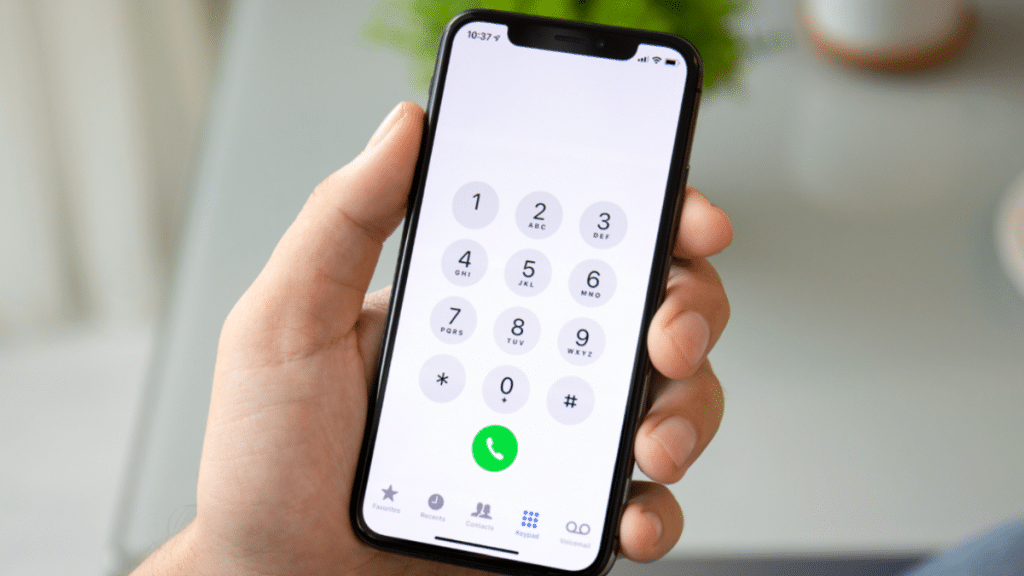Ever signed up for something online and instantly regretted handing over your phone number? Maybe it was a sketchy-looking site, or an app that promised a “free trial” but suddenly bombarded you with texts. It happens. And that’s where a temporary phone number comes in handy — a quick, disposable layer of privacy between you and whoever’s asking for your digits.
Online privacy is messy. Companies hoard your data, numbers leak, spam creeps in. But you don’t always have to give out your real number. Sometimes, the use of a temp wide variety isn’t simply smart — it`s essential.
Let`s ruin down the way it works, in which to apply it, and why it`s one of the handiest gear to live nameless on-line with out turning your existence upside down.
What Exactly Is a Temporary Phone Number?
A transient telecellsmartphone wide variety is simply what it sounds like: a telecellsmartphone wide variety you could use for a brief time, frequently through a internet site or app, to get hold of textual content messages or calls.
Unlike burner phones (the type you purchase and toss), transient numbers are commonly cloud-based.
They can be:
- Free or paid
- Valid for a few minutes or several days
- Public (shared with other users) or private (just for you)
These numbers don’t tie to your real identity or SIM card. You use them when you need them and ditch them when you don’t.
Why Would You Use One?
Plenty of good reasons, actually — and they’re not all shady. Here’s when a temporary number just makes sense:
1. Registering for websites you don’t fully trust
If a platform demands your number but you’re not sure how they’ll use it, a temp number gives you a way in — without risking spam or leaks.
2. Testing apps or services
Trying a new dating app? Signing up for crypto exchanges? Temporary numbers are perfect for one-time verifications that don’t need to stick.
3. Avoiding marketing texts
Let’s be honest: “we won’t share your info” is rarely true. Use a disposable number, and you can avoid the sales pitches altogether.
4. Creating multiple accounts
Some platforms only allow one account per phone number. If you’re managing multiple profiles (for work, testing, or personal use), temp numbers let you get around the limit.
5. Protecting your real number from leaks
Data breaches happen all the time. Giving your actual number to random online services is just asking to end up on a spam list.
How It Protects Your Privacy
At its core, a temporary phone number acts as a buffer between your personal identity and the internet.
Here’s how it helps:
Keeps Your Real Number Hidden
No matter who you’re messaging or what service you’re signing up for, your actual number stays off the record.
Prevents Unwanted Tracking
Phone numbers are often tied to ad networks, behavioral tracking, and data brokers. Using a temp number breaks that link.
Limits Damage from Data Breaches
If a service gets hacked, the only number they leak is one you no longer use. Simple.
Lets You Disappear Easily
Don’t like how a conversation or app is going? Drop the number. Start fresh. No ties, no cleanup.
Risks and Limitations to Know
Temporary phone numbers are powerful — but they’re not perfect. You should be aware of a few things:
- Some services block virtual numbers. Big names like WhatsApp or Google sometimes detect and reject temp numbers.
- Public numbers may be reused. If you’re using a free, shared number, someone else might read messages too. Don’t use them for sensitive info.
- They’re not for emergency use. These aren’t real phone plans. No support. No recovery options. Use them for low-risk situations only.
In short: use temp numbers for convenience and privacy — not for anything critical.
When to Stick With Your Real Number
There are moments when you should use your real phone:
- Bank accounts and financial services
- Medical portals
- Two-factor authentication for email or cloud storage
- Government or legal services
In these cases, you need a number you can access long-term — preferably one tied to you personally.
Best Practices When Using Temporary Numbers
- Choose a private number if you’re receiving login codes or personal messages
- Delete messages after use, especially on shared platforms
- Use a reputable provider that doesn’t store or sell your data
- Set reminders for when the number will expire, so you’re not locked out of anything
- Test before committing — make sure it works for the site or service you’re using
Сonclusion
Using a temporary phone number isn’t about hiding from the world. It’s about controlling what part of your life you share online — and with whom.
From bypassing spammy sign-ups to avoiding sketchy data collection, it’s one of the easiest ways to stay private without going off-grid. And in a digital world where your number is tied to everything from social profiles to location data, having an extra layer of protection makes more sense than ever.
So next time a random site demands your number for “verification,” pause. Ask yourself: Do they really need it? Or is this a good moment for a temp number?
Most of the time, you’ll know the answer.
